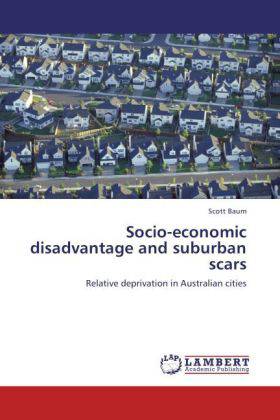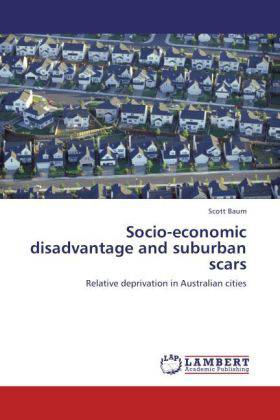
- Afhalen na 1 uur in een winkel met voorraad
- Gratis thuislevering in België vanaf € 30
- Ruim aanbod met 7 miljoen producten
- Afhalen na 1 uur in een winkel met voorraad
- Gratis thuislevering in België vanaf € 30
- Ruim aanbod met 7 miljoen producten
Zoeken
Socio-economic disadvantage and suburban scars
Relative deprivation in Australian cities
Scott Baum
Paperback | Engels
€ 60,95
+ 121 punten
Omschrijving
The question of disadvantage, deprivation and social exclusion cuts across many layers of society and has become an increasingly important focus for both research and policy. While some localities and communities are resiliant and manage to overcome change and associated difficulties, many urban localities bare the negative outcomes of periods of social and economic transformation. These transitions, that impact on individuals and families, are also reflected in the geographic patterns of disadvantage because of where people live and their interactions within the wider metropolitan systems. Using output an index of relative disadvantage this book considers how these patterns of disadvantage are a feature of Australian cities and how policy should begin to address the uneven patterns noted.
Specificaties
Betrokkenen
- Auteur(s):
- Uitgeverij:
Inhoud
- Aantal bladzijden:
- 104
- Taal:
- Engels
Eigenschappen
- Productcode (EAN):
- 9783848497751
- Verschijningsdatum:
- 28/08/2012
- Uitvoering:
- Paperback
- Afmetingen:
- 152 mm x 229 mm
- Gewicht:
- 155 g

Alleen bij Standaard Boekhandel
+ 121 punten op je klantenkaart van Standaard Boekhandel
Beoordelingen
We publiceren alleen reviews die voldoen aan de voorwaarden voor reviews. Bekijk onze voorwaarden voor reviews.








